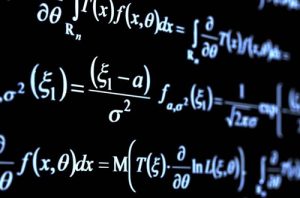
It’s not every day that mathematics is considered a necessary entrepreneurial skill, but Edzai Zvobwo believes it just might be.
Zimbabwean-born Zvobwo is a mathematician and the founder of MathsGenius Leadership Academy (MGLI) which is on a quest to demystify maths and capacitate learners to be prolific problem-solvers by showing them the utility value of the mathematical thinking frameworks in life. Zvobwo is also a motivational speaker, speaking out on issues of education and gender. He has also authored two self-help books on the subject, written such that both learners and parents can understand.
“Firstly, learners, teachers and parents all have to overcome the fear of maths and embrace the fact that they use maths implicitly on a daily basis”, said Zvobwo passionately.
Mathematics as a way of business
According to Zvobwo, all entrepreneurs can benefit from having a solid grasp of mathematical concepts as it forms the basis of good problem solving, decision making and leadership.
Edzai Zvobwo.
“Mathematics can help entrepreneurs grapple with numbers, graphs, accounts, maximise profits and minimise costs,” he says. The ability to figure out what the numbers say and how they can be improved upon is the secret to success, he adds.
Mathematics as a subject, Zvobwo claims, is composed of a series of problems that have to be solved which is analogous to business.
“If a business is to progress past the start-up stage, instincts need to be supported by down and dirty number crunching and maths models.”
He also says the resilience and definiteness of purpose afforded in a maths class is a necessary and sufficient ingredient for success in business.
“Maths skills can also be used to provide savvy solutions to complex, real-world problems through mathematical modelling,” he says.
Using American techpreneur Mark Zuckerberg’s Facebook as an example, Zvobwo explains that the Facebook platform is build on complex mathematical theories and concepts like: six degrees of separation, neural networks and graph theory to optimise connections among friends to achieve optimal results.
The African entrepreneurs of the future, Zvobwo says, will solve some the the continent’s biggest challenges like how to manage natural resources, respond to epidemics, or educate the next generation.
Skills shortage in STEM
African countries continue to rank low in mathematics and science education. According to a 2013 report by the World Economic Forum, South Africa’s maths and science education is ranked the second last, only second to war-torn Yemen.
This has resulted in South Africa having a skills shortage in the science, technology, engineering and science sectors.
Zvobwo says this is worrying as problem-solving and critical thinking are sought after skills in modern economies the world over.
Maths as a way of life
To overcome the skills shortage, what is needed is a more holistic subject approach, says Zvobwo. “Maths is everywhere, it permeates every business and household,” he says.
“The problem is that learners do not receive any motivation in doing maths outside the school environment. But if we can teach them how to apply mathematics in every sphere of their lives, that it’s not only about solving an X, then they can see how easy the subject is and how it contributes to solving everyday problems,” he adds.
Maths more than an “X”
Zvobwo holds a BSc Honours degree in maths, statistics and physics from the University of Zimbabwe. His love for mathematics began when he was still young.
“There was a strong emphasis on maths from school and home and this led to more hours doing mathematics hence good mathematical skills,” he says.
“A teacher by the name of Mr Barnett truly sparked my interest in mathematics as he was able to simplify seemingly complicated problems.”


